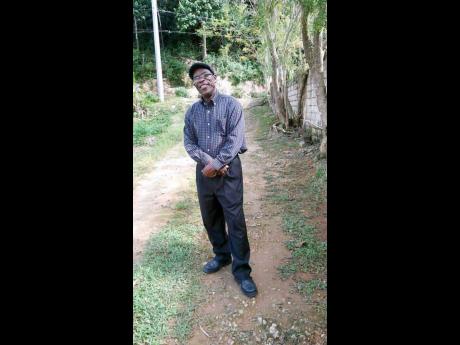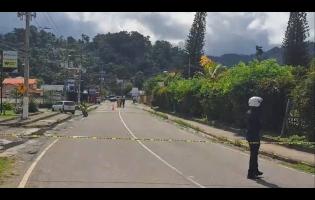50 YEARS BEFORE PAROLE ... Adams against early release for certain crimes
Adams against early release for certain crimes
Retired crime-fighter Reneto Adams believes that criminals who do premeditated crimes should not be eligible for parole until they have spent at least 50 years in prison.
"If you observe, in America when you are arrested and charge for certain offences, you are gone for no fewer than probably 50 years. If you are being considered for parole, my recommendation would be that they have to do 50 years in prison," he said.
Adams was contacted by THE STAR following the release of former gang leader of the Gideon Warriors, Kevin Tyndale, also called 'Richie Pooh', from prison, on parole.
"Those people who deliberately go to kill and rob, rape and burn, should not get parole. I am 100 per cent against parole," said Adams, who retired from the Jamaica Constabulary Force at the rank of senior superintendent of police in 2012.
Adams believes that convicts often times pretend to be Christians in order to leave prison early. He said that he would like for the Parole Board to revisit what they use to determine how a person gets parole.
Before the recent release of Richie Pooh, a murder convict, Linton Stephenson, was implicated in the gruesome murder of Khyhymn Campbell, whose body was found in an igloo in a motor car along Marshall's Pen Road in Manchester on August 28.
Stephenson was convicted in St Thomas for felonious wounding in 1980. He was later convicted in the Home Circuit Court for murder in 2007 and sentenced to 15 years, eight of which he served before he was released on parole. He then became a deacon in the Seventh-day Adventist Church in Mandeville. Stephenson, who the police listed as a suspect in Campbell's
murder, was later found dead in his home. It is suspected that he committed suicide.
Richie Pooh, on the other hand, has been tried in the court on multiple charges of murder, robbery with aggravation, wounding with intent and illegal
possession of firearm since 2005. He was sentenced to a total of 30 years on each charge, which would be 90 years but it was to run concurrently, which would be 30 years.
His release has reportedly triggered a directive from the National Security Council to the Ministry of National Security to carry out the review after the security forces raised concerns about parole being granted to "offenders whose release has been assessed as being contrary to the public interest, given the magnitude of their criminal antecedents".
Strong position
Reflecting on both cases, Adams said the State must take a strong position to ensure that dangerous criminals are not released into the society.
"If you make a mistake in the rush of the moment, not premeditated, I have no problem for them getting parole over a reasonable time, probably 10 years," Adams said.
"Many of these people come out and commit even worse crimes than they had committed before going to prison, and
people will say we don't have the evidence but these are people who would have spent time in prison harmonising how they do crime without being detected and without being caught," he added.
In light of this, Adams believe that the Parole Board should look at the nature of the crime and what has been done in determining whether or not to let out a criminal instead of taking their 'Christian' word for it.
"We have such a severe crime problem in Jamaica ... I am not sure why they are in such a hurry to send these people back on the street. From what I have seen, the chief element of action is to say they are Christians, and quick-quick they are paroled because you hear that they have changed; but when they come out, they start their criminal activities. Not all do it, but it is just as dangerous when you send an innocent man to prison as it is to send out these criminals," he said.







































